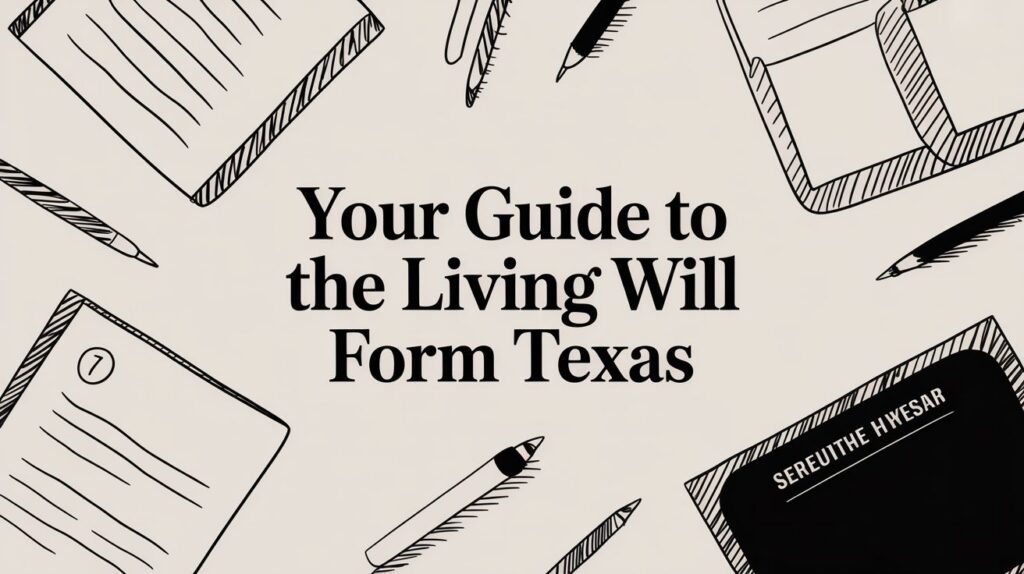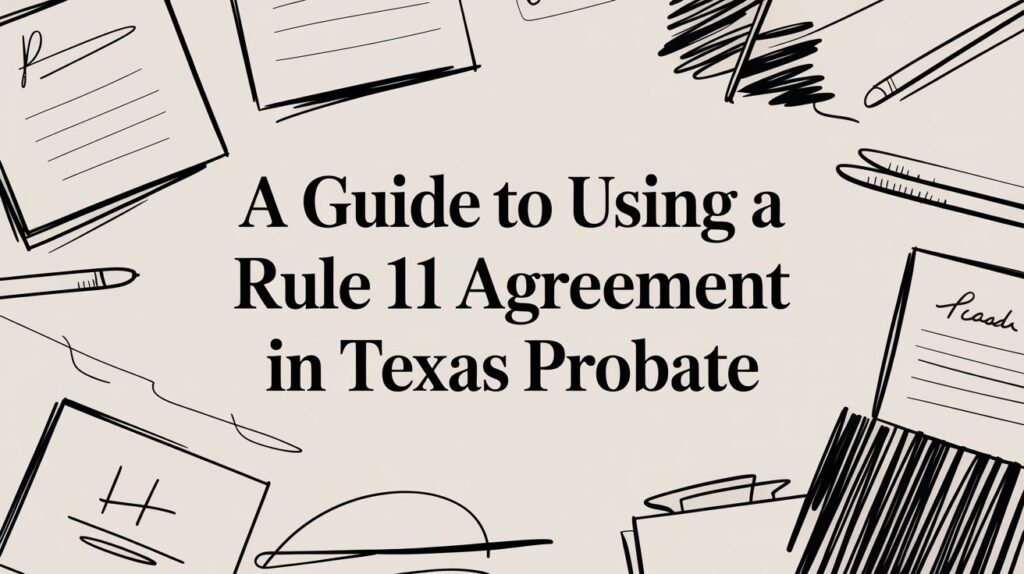If you’ve recently lost a loved one or are preparing for estate planning, you’ve probably found yourself wondering: what is probate law in Texas? You’re not alone. Probate is one of the most misunderstood yet essential legal processes in the state, and while it might sound intimidating, understanding it can actually help families avoid unnecessary stress, legal costs, and confusion.
In this guide, we’ll break down Texas probate law in a way that makes sense without the legalese. We’ll cover how it works, who’s involved, and what families and heirs can expect from start to finish. Along the way, you’ll hear real-life examples and tips that make navigating the process feel less like a legal minefield and more like something you can manage with confidence.
What Is Probate Law in Texas and Why Does It Matter?
Let’s start with the basics. Probate law in Texas governs how a person’s estate think assets like property, money, and personal items—is handled after they pass away. The probate process ensures that debts are paid, wills are validated, and remaining property is legally transferred to the correct heirs.
But why does this matter? Because without probate, disputes can erupt, property can get tied up for years, and creditors can come after heirs. Probate is the legal way to wrap up someone’s financial life so that their legacy isn’t lost in red tape.
In Texas, probate can be surprisingly efficient if everything is in order. The state actually offers multiple paths through the process, some of which are faster and less costly than others. But before we dive into those, let’s look at who’s involved and what triggers the probate process in the first place.

When Does Probate Begin in Texas?
A probate case in Texas officially begins when a will is filed with the local probate court, usually in the county where the deceased lived. If there’s no will (what lawyers call dying “intestate”), the process still kicks off—just under different rules.
Let’s say your uncle passed away in Bexar County and left behind a will and a house. You’d need to file the will with the probate court there and begin the legal process of having an executor appointed to carry out the instructions in that will. If there’s no will? Then the court uses state law to decide who inherits the property, and someone—usually a close relative—must apply to be the estate administrator.
It’s worth noting that there are legal deadlines in Texas. Wills should be filed within four years of the person’s death. Miss that deadline, and things get a lot more complicated.
Key Players in a Texas Probate Case
Every probate proceeding in Texas involves a few core people. Understanding their roles is the first step to making the process smoother.
The Executor or Administrator
If the person left a will, it usually names an executor—someone trusted to handle their final affairs. This person carries out the instructions in the will, pays off any debts, files taxes, and distributes assets. If there’s no will, the court appoints an administrator to do the same job under Texas law.
Executors and administrators have what’s called a “fiduciary duty.” That means they’re legally required to act in the best interest of the estate and its heirs—not themselves.
:max_bytes(150000):strip_icc()/GettyImages-695596764-f85a2ca6141c41f7ba858ffb56e9b1fd.jpg)
The Probate Judge
The judge oversees the case, ensuring everything complies with Texas probate law. They approve the executor, verify the will (if there is one), and settle disputes. Most Texas probate courts operate at the county level, and some—like in Harris or Travis County—have specialized probate courts.
Heirs and Beneficiaries
Heirs (those who inherit under the law) and beneficiaries (those named in a will) are central to the process. They have the right to be notified, object if something seems wrong, and receive what’s rightfully theirs after debts and taxes are settled.
Common Probate Paths in Texas
Here’s where Texas actually stands out. While many people imagine long, expensive court battles, Texas probate law offers several streamlined options depending on the size and complexity of the estate.
Independent Administration
This is the most common—and often the simplest—type of probate in Texas. If the will allows it (or if all heirs agree), the executor can manage the estate with minimal court supervision. They’ll still have to notify creditors, file inventories, and handle asset transfers, but they won’t need to get court approval for every single action.
For families, this means fewer court appearances, faster resolution, and lower legal costs. It’s a big reason many Texans include language in their wills allowing for independent administration.
Dependent Administration
This route requires court supervision at nearly every step. The executor must get approval before selling assets, paying debts, or distributing property. It’s more time-consuming and expensive but may be necessary if the heirs are fighting, the estate is complicated, or the will is unclear.
Muniment of Title
This is one of the most unique features of probate law in Texas. If the deceased had a will, no debts (other than a mortgage), and there’s no need for administration, families can ask the court to probate the will as a “muniment of title.” It’s essentially a legal shortcut that allows property transfer without appointing an executor.
Real estate, in particular, can be passed this way—making it a cost-effective option for simpler estates.
Small Estate Affidavit
If the total value of the estate is under $75,000 (not counting the home), you might be able to use a small estate affidavit. This avoids full probate and allows heirs to collect assets by filing a sworn statement with the court.
It’s a great option for families who just need access to a few remaining bank accounts or personal property, without going through a drawn-out legal process.
What If There’s No Will?
If someone dies without a will in Texas, their estate is distributed under the Texas Estates Code. This process is known as intestate succession, and it follows a very specific order:
- If they had a spouse and children, the estate may be split between them
- If they had no spouse or kids, the estate may go to parents, siblings, or extended family
- If no relatives can be found, the estate may eventually go to the State of Texas
Without a will, there’s also no named executor. That means someone—usually a close family member—must apply to be the administrator, and they’ll have to post a bond (insurance) to protect the estate unless waived by the court.
Real-World Example: The Garcia Family’s Probate Journey
When Maria Garcia passed away in San Antonio, she left behind a home, a small retirement account, and a handwritten will naming her niece Rosa as executor. Rosa, overwhelmed but determined to honor her aunt’s wishes, contacted a probate attorney to help guide her through the process.
Because the will asked for independent administration and Maria had minimal debt, the process was fairly straightforward. The attorney helped Rosa file the will, get appointed as executor, and publish notice to creditors. After settling the final utility bills and transferring the home’s title, Rosa distributed the remaining funds to the beneficiaries.
Rosa’s story shows how probate law in Texas doesn’t have to be a nightmare. With a little planning and good guidance, families can navigate the process respectfully and efficiently.
Tips for Navigating Texas Probate Smoothly
Understanding what is probate law in Texas is one thing. Navigating it? That’s another story. These tips can help keep the process from becoming a source of stress or conflict.
- Start early. File the will within the four-year deadline, and gather documents like deeds, bank statements, and life insurance policies right away.
- Hire a probate attorney. Especially if the estate involves property, multiple heirs, or out-of-state assets, legal guidance can prevent costly mistakes.
- Communicate with family. Keeping heirs informed reduces suspicion and builds trust, especially if someone is feeling left out.
- Consider mediation if there’s conflict. Probate litigation can drain estates fast—mediation helps resolve disputes more peacefully.
- Don’t skip creditor notices. Texas law requires executors to notify potential creditors, or risk becoming personally liable for missed debts.
Probate and Real Estate in Texas
If the estate includes property, Texas probate law has some quirks that can work in your favor. Texas recognizes something called an “affidavit of heirship,” which can sometimes be used to transfer property without full probate—if certain conditions are met.
Additionally, if the property was owned as joint tenants with right of survivorship or as community property with right of survivorship, it may pass automatically to the surviving owner without probate.
It’s important to get legal advice before transferring title, as doing it incorrectly can cause title issues down the road—especially when selling the property later.

Final Thoughts: Why Understanding Texas Probate Law Matters
So, what is probate law in Texas? It’s the legal process that ensures a person’s final wishes are honored—or, if there’s no will, that their estate is distributed fairly under the law. While it may seem overwhelming at first, Texas offers flexible, efficient probate options designed to make the process smoother for grieving families.
The more you understand it, the better prepared you’ll be to handle estate matters with confidence—and without unnecessary conflict. Whether you’re planning ahead or handling a loved one’s affairs, knowing the ins and outs of probate law in Texas gives you the tools to protect what matters most.








